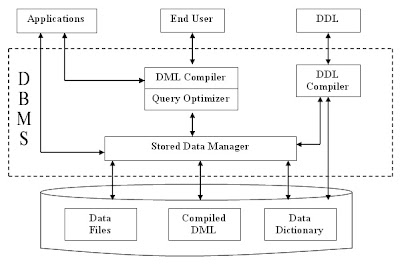ERP = Enterprise Resource Planning
ERP Definition
What is ERP all about? It stands for Enterprise Resource Planning. It refers to both the software and the business strategies which will allow you to implement the business systems. Implementing Enterprise Resource Planning utilizes various functional areas to help improve organizations performance for:- Resource Utilization and Planning
- Good Management Control over the organization.
- Resource Operation Control.
- Improve maximum product utilization.
- Centralized planning and co-ordination
Enterprise Resource Planning Systems is a lot bigger when compared to your desktop software. It includes a very complex System solution and has many business processes being handled by lots of users and many developers trying to customize it to suit the organization needs. There are lots of components which make a complete system. These different modules interact to provide one common perspective which is to streamline and tie up all the business processes in the organization.
Integration of ERP
ERP Allows you to integrate all the Business Processes in one single Platform. Just imagine any organization you know. It has got many divisions; Sales & Distribution, Purchasing, Material Management, Finance accounting, Warehousing Management, Human Resource, Planning & Co-ordination etc. Now, everyone in here is using a different set of applications and provide you with different services. Where does the role of enterprise fit in lets forget about the Resource and Planning for time being. ERP as an Example.
ERP as an Example.
Now, this enterprise is providing you with it’s own set of services. what are they? lets put it into a simple way. Assume we are manufacturing a product. say a Pen. A customer is placing a order for pen. That’s when the sales division comes into picture, the sales division check with the warehousing if there exists a stock for a pen, if Yes they ship it and then the process goes on to the finance division for paymentand because the stock should be ready when ever a customer places an order , we need to manufacture these pens and keep the pens ready in stock. To know how much to manufacture we need some planning and to manage all these processes we need people… there comes the Human resources.Okay, here we go, looks like we have integrated all the departments to do one common task, which is selling a pen.
Benefits of ERP System
It provides improved planning and co-ordination across all the functional departments which improve overall business efficiency. It facilities easy and smooth handling of day-to-day business activities. Here are some of the benefits of implementing Enterprise Resource Planning software in your organization.- Improved Strategic Planning
- Improved Productivity and operational efficiency.
- Improved financial management and corporate governance.
- Highly help reduce the operation costs.
- Real time information throughout the organization at all levels.
- Better visibility of business processes.
- Common best practices and proven and tested methodologies can be customized in ERP Systems.
- Facilitate day-to-day management
- Strategic planning.
- Monitoring and Control.
- Streamline quality control in the business processes.
- Proper Analysis and Reporting for long term planning.
ROI Factors to consider ERP Implementation
- Lower Inventory costs thorugh better efficiency and visibility.
- Lower savings through reduced reworks.
- Remove non valued added activities.
- Reduced manual intervention.
- Enable employees to use more analysis rather than transactional routine work.
- Improved decision making with the use of real-time data.


